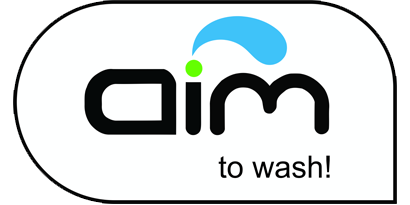10 Reasons Toilet Paper is Going Out of Style
In our ever-evolving world, even the most mundane items can fall out of favor. Recently, toilet paper has been facing a decline in popularity as people seek out more sustainable and innovative alternatives. Let's uncover the reasons behind this shift and explore what the future might hold.
1. Environmental Concerns Take Center Stage
With growing awareness about deforestation and excessive water usage, the environmental impact of toilet paper is hard to ignore. Many individuals are seeking options that are kinder to the planet. Sustainable alternatives such as bamboo, which is fast-growing and biodegradable, are gaining popularity, encouraging a shift toward eco-friendly practices. Living in an era where climate change is a pressing concern, even such minor changes in our daily habits can contribute significantly to environmental conservation.
Another aspect that makes traditional toilet paper less appealing is its carbon footprint. The production process not only contributes to deforestation but also requires considerable energy and chemical inputs. Reducing ecological impact is becoming a priority for consumers who are informed and care about leaving a positive mark on the environment.
2. The Rise of Bidets
Bidets have gained popularity as a hygienic and eco-friendly alternative to toilet paper. Offering a fresh and clean experience, they dramatically reduce paper waste. Many nations, such as Japan and parts of Europe, have been using bidets for years, and now this trend is catching on globally. The hygienic benefits and ease of installation make bidets an attractive choice for modern bathrooms.
Moreover, bidets offer a more sustainable choice by eliminating the need for countless rolls of toilet paper. While some may hesitate, citing cultural habits, the long-term benefits in terms of both cleanliness and environmental impact are hard to overlook. As more people realize the advantages, it’s not surprising that the concept is swiftly gaining traction across various demographics.
3. Economic Savings by Ditching Paper
While the initial investment in alternatives might be higher, the long-term savings are significant. Households can save money by switching away from single-use paper products. Take bidet installations for instance—though there is an upfront cost, they help reduce monthly spending on toilet paper drastically.
Furthermore, when reusable materials are considered, such as cloth wipes, the argument for cost savings becomes even stronger. Transitioning requires a mindset shift, but the recurring savings provide a compelling reason to consider these alternatives. Budgeting becomes easier and more predictable over time, especially when supply chain disruptions can lead to dramatic price hikes for paper goods.
4. Comfort and Hygiene Revolution
Alternatives like bidets and reusable cloths provide a level of cleanliness and comfort that toilet paper often can't match, making it a no-brainer for those seeking an enhanced bathroom experience. Bidets offer a gentle and thorough clean without the need to be abrasive, which is crucial for people with sensitive skin.
Furthermore, the emergence of advanced bathroom technologies that integrate warm water and air dryers further enhances the comfort offered by these alternatives. It's clear that the bathroom isn't just a functional space anymore—it's an area where tech and relaxation converge for a superior user experience.
5. Reusable Options for the Eco-Conscious
Cloth wipes and other reusable options are gaining traction among environmentally-conscious consumers who wish to cut down on waste. These solutions are especially appealing to those who lead sustainable lifestyles and are committed to reducing their carbon footprint.
Though reusable options might appear inconvenient at first, many users find them to be a practical and straightforward addition to their routines. They align perfectly with the ethos of zero waste and the minimalist movement. With proper hygiene practices, these alternatives are both safe and economical.
6. Smart Tech in Bathrooms
Technological innovations have introduced smart toilets and bidets, offering advanced features for an improved and convenient bathroom experience. With touchless systems and personalized settings, the latest devices offer unprecedented levels of hygiene and comfort.
The development of smart toilets provides a glimpse into the future, where the integration of tech is seamless, pairing functionality with luxury. Modern bathroom gadgets can monitor water usage, ensuring sustainability without compromising on utility or user satisfaction.
7. Cultural Shifts in Bathroom Habits
Changing cultural attitudes toward hygiene have encouraged people to explore beyond traditional toilet paper solutions. The shift is driven by both environmental awareness and the influence of global travel, introducing diverse hygienic practices.
As international travel becomes more frequent, exposure to different bathroom habits promotes experimentation with new ideas. Coupled with educational campaigns highlighting sustainable hygiene practices, this cultural exchange propels the shift away from mass-market paper products.
8. Allergies and Sensitivities
For those with sensitive skin or allergies, toilet paper alternatives offer relief and comfort, making them a preferred choice. The harsh chemicals and fragrances sometimes present in conventional toilet paper can irritate sensitive skin.
By opting for water-based cleaning systems or hypoallergenic materials, individuals with specific needs can avoid uncomfortable reactions. Understanding these sensitivities is crucial in promoting inclusivity in hygiene products.
9. Minimalist Movements Embrace Change
Minimalist lifestyles focus on simplicity and sustainability, welcoming the move away from paper products in favor of reusable and multifunctional options. This shift aligns with the central principle of owning fewer, more meaningful items.
Among green lifestyle influencers, adopting minimalist bathroom practices is becoming an integral part of the movement. As influencers showcase the benefits of simple living, these practices resonate with those aspiring to reduce clutter and environmental impact.
10. The Influence of Viral Trends
Social media and viral trends have accelerated the decline of traditional toilet paper by popularizing and normalizing the alternatives. Platforms like TikTok and Instagram abound with videos highlighting the benefits and ease of transitioning to eco-friendly solutions.
These viral campaigns encourage users to share personal stories and tips, creating a community of sustainable living enthusiasts. This peer-driven influence makes previously unusual choices seem mainstream and accessible.

